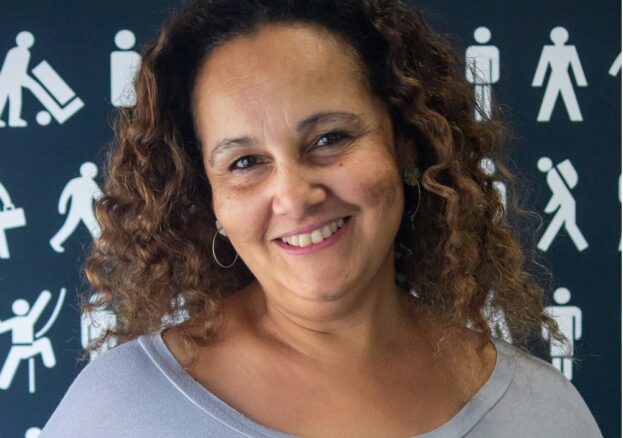
Here, Prostate Cancer UK Specialist Nurse Susan Piper answers some common questions about the disease.
What is prostate cancer?
Prostate cancer is the most common cancer in men. It develops when cells in the prostate start to grow in an uncontrolled way. Although some prostate cancers grow so slowly that they never cause any problems, some grow more quickly and need treatment to stop them spreading.
I’m a Black man – should I get checked out?
Black men are twice as likely to get prostate cancer as other men. Your risk is even higher if you’re over 45 or if your father or brother has had it.
Prostate cancer mainly affects men over the age of 50, but Black men can sometimes be diagnosed at a slightly younger age. If you’re Black and over 45, we’d encourage you to speak to your GP about your risk of prostate cancer, even if you don’t have any symptoms.
Prostate Cancer UK’s 30 second online risk checker can help you understand your risk and what to do next. You can find it at prostatecanceruk.org/riskcheck
Why should I speak to my GP if I don’t have symptoms?
If prostate cancer is caught early, there’s a good chance it can be cured. But most men with prostate cancer don’t have any symptoms until the cancer has already spread, which is why it’s important not to wait to speak to your GP – even if you feel completely fine.
If you do notice any symptoms, such as changes in the way you urinate, it’s a good idea to get checked out. While it may simply be a common problem like an infection, it could be a sign of prostate cancer.
What will happen when I speak to my GP?
Your GP will talk to you about your risk of prostate cancer and the tests you can have to diagnose it.
There is no single test to diagnose prostate cancer, but the first step is usually the PSA blood test. If your PSA level is raised, you might be referred for other tests such as an MRI scan or biopsy.
There are advantages and disadvantages of having a PSA blood test. You can discuss these with your GP or Prostate Cancer UK’s Specialist Nurses, so you can make a decision that’s right for you.
Some doctors will also offer a physical prostate examination, but it’s important to remember that you can still be checked for prostate cancer without this test and it’s your choice whether or not you have it done.
Why are Black men at higher risk of prostate cancer?
We don’t know exactly why Black men are at higher risk of prostate cancer, but we do think it’s likely to be linked to genes, which are passed down from our grandparents to our parents to us.
It’s vital that we understand why Black men are at this increased risk. That’s why we’re funding the PROFILE study in partnership with Movember, which is the first of its kind in the UK aiming to answer this important question. Researchers are looking at the genes of men of African and Caribbean descent to see if they can learn to predict prostate cancer risk. This should help us develop better tests that can catch prostate cancer earlier and save more lives.
If you’re a man of African or Caribbean descent aged 40-69 and haven’t had prostate cancer, you may be able to take part. You can find out more and how to get involved at prostatecanceruk.org/riskresearch
What can I do to help?
If you’re a Black man over 45, the most important thing you can do is speak to your GP about your risk.
I’d also encourage people to talk openly about prostate cancer with friends, family and the wider Black community. 1 in 4 Black men will get the disease, but lots of people don’t know they’re at risk – especially if they don’t have symptoms. A conversation with your friend, your dad, your husband, or anyone else in your life can make a big difference.
Sharing Prostate Cancer UK’s risk checker is a quick and easy way to raise awareness and help more men get diagnosed earlier.
Where can I find support or more information?
If you have any concerns or questions about prostate cancer, Prostate Cancer UK’s team of Specialist Nurses are here to help. You can reach us on 0800 074 8383 or online at prostatecanceruk.org.
We also have information specifically for Black men which you can read online or order for free from our shop.
If you have prostate cancer, or if you’re the partner, family or friend of someone affected, our one-to-one support service can put you in touch with volunteers from the Black community who have been through a similar experience. We also have links to a wide range of support groups specifically for men of African and Caribbean heritage. The most important thing to remember is that you’re not alone. We are here to support you.
Check your risk of prostate cancer in 30 seconds at prostatecanceruk.org/riskcheck
